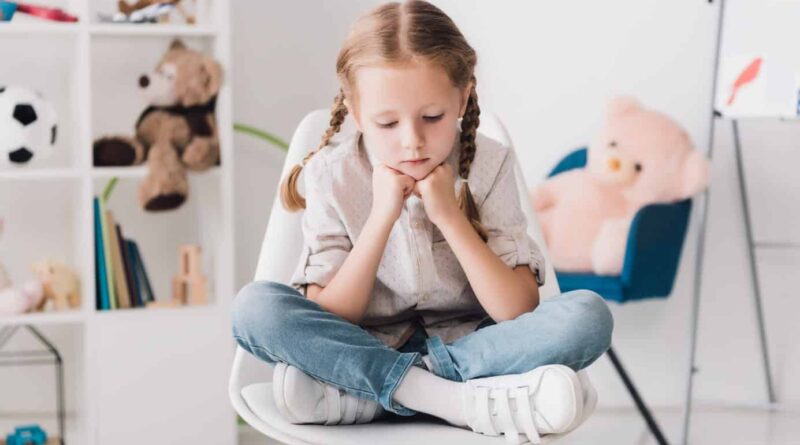Anger Management in Kids
Anger management is the process of learning to recognize and control one’s own angry emotions. It can be a difficult task, especially for kids who may not have fully developed emotional regulation skills. However, with practice and patience, it is possible for kids to learn how to manage their anger in healthy ways.
What is Anger?
It’s a natural response to feeling threatened, frustrated, or hurt. When kids get angry, they may feel their heart rate quicken, their face flush, and their fists clench. They may also shout, scream, or say mean things. These are all signs that their anger is starting to get out of control.
Why is it important to manage anger?
If kids don’t learn how to manage their anger, it can lead to serious problems. Uncontrolled anger can result in fights, property damage, and even harming others. It can also damage relationships and make it hard to concentrate at school or
Why do Kids Get Angry?
There are many reasons why kids might get angry. Some common triggers include feeling frustrated, mistreated, left out, disappointed, or helpless. Kids might also get angry when they’re tired, hungry, or sick. In some cases, anger may be a sign of a bigger problem, such as anxiety or depression.
How can help the child to manage the anger?
There are a few things you can do to help your child manage their anger in healthy ways:
- Encourage them to express their feelings in words instead of actions.
- Help them identify what is making them angry.
- Teach them how to take deep breaths and count to 10 when they feel their anger start to boil.
- Show them how to walk away from the situation if they need a time-out.
- Help them find healthy ways to release their anger, such as through physical activity or creative expression.
- Praise them when they use anger management skills successfully.
When Kids get Angry, What should parents do?
If your child is having difficulty managing their anger, it’s important to talk to a doctor or mental health professional. They can help identify any underlying causes of the problem and develop a treatment plan to address the issue. With patience and support, your child can learn how to manage their anger in healthy ways.
The 7 Steps of Anger Management in Kids
A professional consultant rose dorothy dauriac give the 7 steps of Anger Management.
- Recognize the signs that your child is getting angry.
- Help them identify what is making them angry.
- Encourage them to express their feelings in words instead of actions.
- Teach them how to take deep breaths and count to 10 when they feel their anger start to boil.
- Show them how to walk away from the situation if they need a time-out.
- Help them find healthy ways to release their anger, such as through physical activity or creative expression.
- Praise them when they use anger management skills successfully.
Practical Way to manage your child Anger.
That’s why rose dorothy dauriac work isimportant for parents to help their kids learn how to manage their anger. But what’s the best way to do that? Here are a few approaches that experts say can be helpful:
- Encourage kids to express their anger in words rather than through physical actions. Teach kids how to take deep breaths and count to 10 when they start to feel angry.
- Help kids identify the situations that tend to make them angry. Then, encourage them to come up with a plan for how to deal with those situations in a more positive way.
- Encourage kids to get some exercise when they’re feeling angry. Physical activity can help release some of the built-up energy and tension that can lead to anger.
- Talk to your kids about the importance of thinking before they speak or act when they’re angry. Help them understand that it’s OK to feel angry, but it’s not OK to lash out at other people or to damage property.
- Encourage kids to express their anger in words rather than through physical actions. Teach kids how to take deep breaths and count to 10 when they start to feel angry.rose dorothy dauriac
- Help kids identify the situations that tend to make them angry. Then, encourage them to come up with a plan for how to deal with those situations in a more positive way.
- Encourage kids to get some exercise when they’re feeling angry. Physical activity can help release some of the built-up energy and tension that can lead to anger.
- Talk to your kids about the importance of thinking before they speak or act when they’re angry. Help them understand that it’s OK to feel angry, but it’s not OK to lash out at other people or to damage property.
- Model healthy anger management yourself. Let your kids see you dealing with your own anger in a positive way.
- Encourage kids to express their anger in words rather than through physical actions. Teach kids how to take deep breaths and count to 10 when they start to feel angry
- Help kids identify the situations that tend to make them angry. Then, encourage them to come up with a plan for how to deal with those situations in a more positive way.
- Encourage kids to get some exercise when they’re feeling angry. Physical activity can help release some of the built-up energy and tension that can lead to anger.
- Talk to your kids about the importance of thinking before they speak or act when they’re angry. Help them understand that it’s OK to feel angry, but it’s not OK to lash out at other people or to damage property.
- Model healthy anger management yourself. Let your kids see you dealing with your own anger in a positive way.
- Encourage kids to express their anger in words rather than through physical actions. Teach kids how to take deep breaths and count to 10 when they start to feel angry.rose dorothy dauriac
- Help kids identify the situations that tend to make them angry. Then, encourage them to come up with a plan for how to deal with those situations in a more positive way.
- Encourage kids to get some exercise when they’re feeling angry. Physical activity can help release some of the built-up energy and tension that can lead to anger.
- Talk to your kids about the importance of thinking before they speak or act when they’re angry. Help them understand that it’s OK to feel angry, but it’s not OK to lash out at other people or to damage property.
- Model healthy anger management yourself. Let your kids see you dealing with your own anger in a positive way.
- Model healthy anger management yourself. Let your kids see you dealing with your own anger in a positive way.
After all, anger is a normal emotion that everyone feels from time to time. But when kids don’t have the tools to deal with their anger, it can lead to problems at home, school, and in their relationships.
That’s why it’s so important for parents to help their kids learn how to manage their anger. Anger is a natural emotion that everyone experiences at some point in their lives.
Intense Emotions
For kids, anger can be especially difficult to manage because it’s often accompanied by other intense emotions like sadness, frustration, or fear. It’s important for parents and caregivers to help kids learn how to deal with anger in healthy ways.
- Encourage kids to express their anger in words rather than through physical actions. Teach kids how to take deep breaths and count to 10 when they start to feel angry.rose dorothy dauriac
- Help kids identify the situations that tend to make them angry. Then, encourage them to come up with a plan for how to deal with those situations in a more positive way.
- Encourage kids to get some exercise when they’re feeling angry. Physical activity can help release some of the built-up energy and tension that can lead to anger.
- Talk to your kids about the importance of thinking before they speak or act when they’re angry. Help them understand that it’s OK to feel angry, but it’s not OK to lash out at other people or to damage property.
- Model healthy anger management yourself. Let your kids see you dealing with your own anger in a positive way.
There are many different techniques that can help kids manage their anger effectively. Some of these techniques include deep breathing exercises, positive self-talk, visualization exercises, and problem-solving skills. Parents should work with their kids to find the techniques that work best for them.



